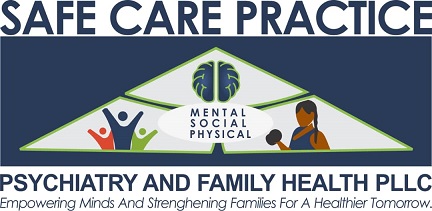Unlocking Health: The Benefits of Medical Weight Loss
Medical weight loss programs are conducted under the supervision of healthcare experts, typically including physicians, dietitians, and other medical professionals. This oversight ensures that your weight loss journey is safe and effective. Regular monitoring allows healthcare providers to adjust your plan as needed, optimizing results while addressing any health concerns that may arise.
One of the standout advantages of medical weight loss programs is their personalized approach. Unlike one-size-fits-all solutions, medical weight loss begins with a thorough assessment of your health history, current physical condition, and specific weight loss goals. This individualized approach allows healthcare providers to create a customized plan that considers factors such as medical conditions, metabolic rate, and lifestyle.
Before embarking on a medical weight loss program, individuals undergo comprehensive evaluations and testing. This may include blood tests, body composition analysis, and assessments of cardiovascular health. These tests provide valuable insights into your current health status, guiding healthcare providers in developing a tailored weight loss strategy that takes your unique needs into account.
Medical weight loss programs are rooted in evidence-based treatments and scientific research. Unlike many commercial weight loss products and programs that lack substantial scientific backing, medical weight loss incorporates proven strategies for long-term success. From dietary counseling to prescription medications and, in some cases, surgical interventions, these programs utilize treatments that have demonstrated efficacy in clinical settings.
Achieving sustainable weight loss is a primary goal of medical weight loss programs. By addressing underlying factors contributing to weight gain, such as hormonal imbalances or metabolic disorders, these programs aim to foster lasting lifestyle changes. Education about nutrition, exercise, and behavior modification empowers individuals to maintain their weight loss achievements over the long term, promoting overall health and well-being.
The benefits of medical weight loss extend beyond shedding pounds. Many participants experience improvements in overall health markers, such as blood pressure, cholesterol levels, and blood sugar regulation. By achieving a healthier weight, individuals reduce their risk of chronic conditions like type 2 diabetes, cardiovascular disease, and joint problems, enhancing both longevity and quality of life.
Successful weight loss often requires more than just a diet plan; it necessitates ongoing support and motivation. Medical weight loss programs offer structured support systems, including regular appointments with healthcare providers, nutritional counseling, and behavioral therapy. This comprehensive approach helps individuals navigate challenges, stay motivated, and stay on track towards their weight loss goals.
After achieving weight loss goals, maintaining a healthy weight is crucial for long-term health and well-being. Medical weight loss programs typically include strategies for ongoing maintenance, equipping individuals with the tools and knowledge needed to sustain their progress. This may involve continued monitoring, periodic reassessments, and guidance on transitioning to a balanced, sustainable lifestyle.
Importance of Seeking Help: Removing stigma and recognizing when professional support is beneficial.
Types of Support: Overview of mental health professionals, therapy options, and community resources.
Conclusion Incorporating these ten steps into your daily life can significantly enhance your mental wellbeing and overall quality of life. By prioritizing sleep, managing stress effectively, nurturing relationships, staying physically active, maintaining a balanced diet, engaging in mental stimulation, practicing gratitude and mindfulness, setting realistic goals, establishing routines, and seeking professional help when necessary, you empower yourself to navigate life’s challenges with resilience and positivity.

